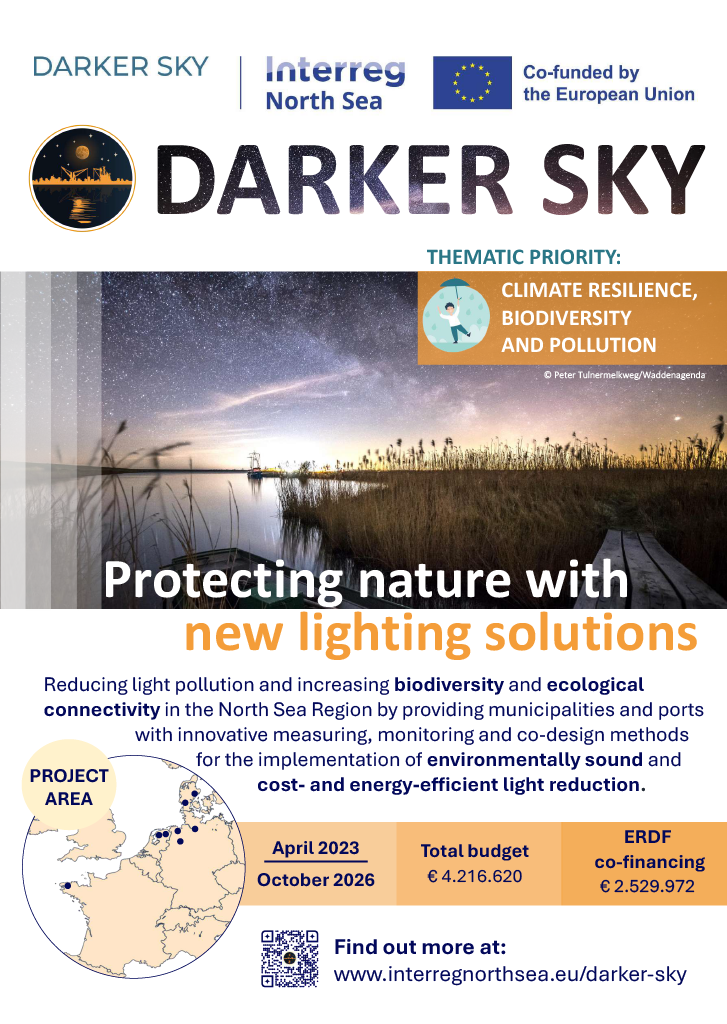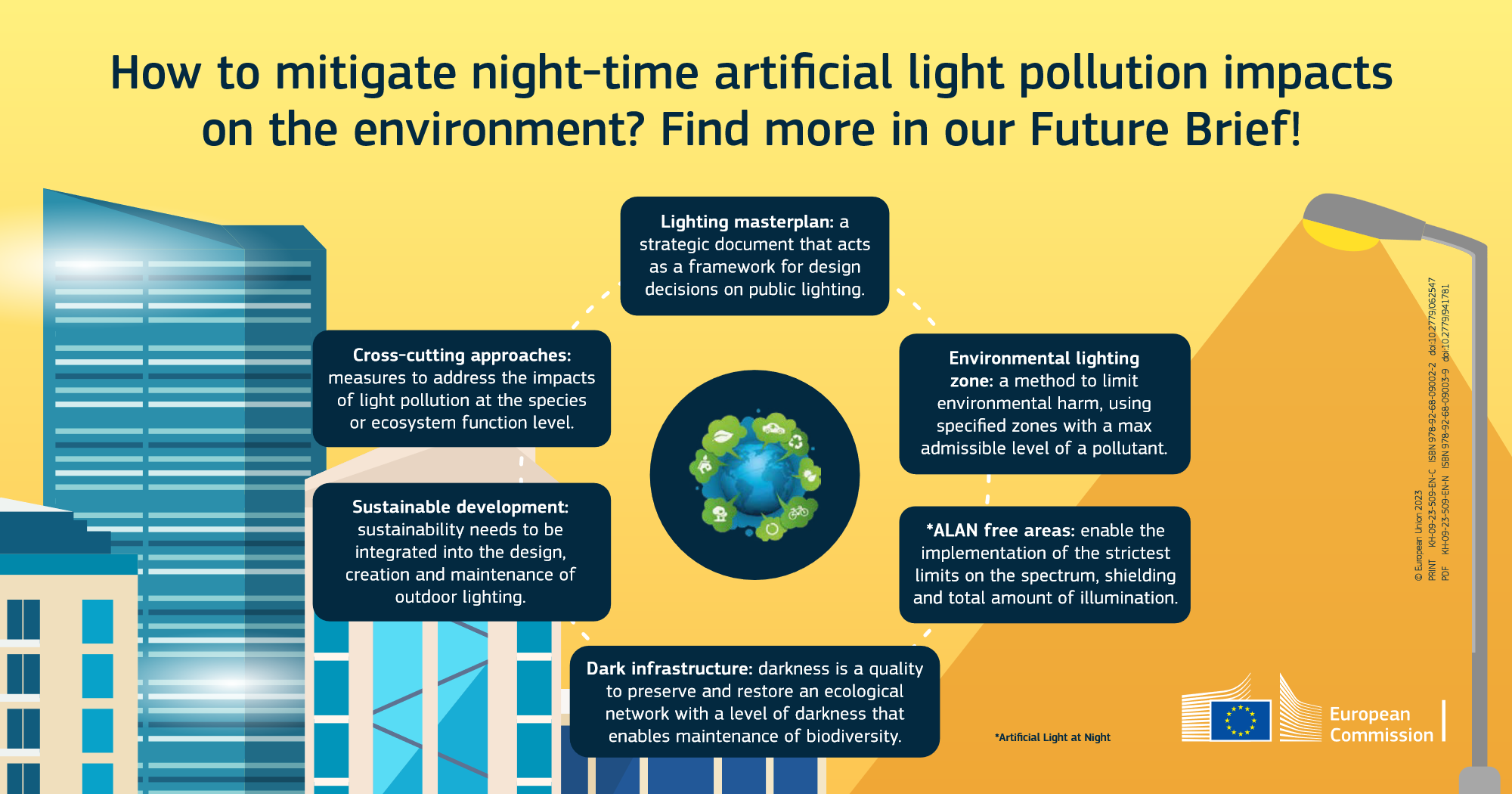DARKER SKY – Interreg North Sea Project
Protecting nature with new lighting solutions – reducing light pollution and increasing biodiversity and ecological connectivity in the North Sea region.
The term light pollution refers to the disturbance of existing light/dark patterns of ecosystems by artificial light at night. The effects range from impairing the behaviour of migratory species to altering annual cycles, loss of biodiversity and serious health effects on humans and other species.
The resulting complexity requires transdisciplinary and transnational perspectives in order to develop multi-layered solutions.
This is precisely where the DARKER SKY project comes in by applying an overarching multi- and transdisciplinary approach. The participating institutions are developing new lighting solutions at eight international demonstration sites with subsequent roll-out across the North Sea region. It brings local, regional and national public authorities into dialogue to enable a sustainable transnational strategy to reduce light pollution.
In addition, DARKER SKY aims to develop transferable transnational measurement and monitoring frameworks for light pollution and the resulting ecological impacts for different species.
HAW is planning and implementing the pilot sites in Hamburg in collaboration with the district of Altona. Co-design methods are used in the process, which are implemented using state-of-the-art XR technologies implemented by the Digital Reality Research and Transfer Centre. The FTZ pushes the boundaries of modern technology and promotes the cross-disciplinary exchange of knowledge.
In addition to the demonstrators, another focus of the HAW is the development of a measurement framework for light pollution. This unprecedented approach combines the measurement of illuminance levels on the ground with the brightness of the sky, to be used at the demonstration sites and beyond. In collaboration, HAW is developing a legal framework for the implementation of light pollution legislation at regional/transnational level.
In addition to HAW, other partners involved include the leading partner, the University of West-Brittany Brest/FR, Brest Métropole/FR, Free and Hanseatic City of Hamburg – District of Altona/GER, Joint Wadden Sea Secretariat/GER, Landmakers Cooperative U. A./NL, Municipality of Heerenveen/NL, Van Hall Larenstein Foundation/NL, Carl von Ossietzky University of Oldenburg/GER, Lower Saxony National Park Authority/GER, NPorts Norddeich/GER, University of Groningen/NL and the University of Aarhus/DK.
DARKER SKY is implemented in the framework of the Interreg North Sea Region Programme under Programme Priority 3, ‘A climate resilient North Sea Region’, Specific Objective 3.2, ‘Enhance the protection and conservation of nature, biodiversity and green infrastructure, including in urban areas, and reduce all forms of pollution’. The programme is financed by the European Regional Development Fund (ERDF) of the European Union.
Total budget: € 4,216,620
Funding programme: EU Interreg Nordseeregion
Funding period: 2023-2026
Further information on the project website: DARKER SKY | Interreg North Sea

